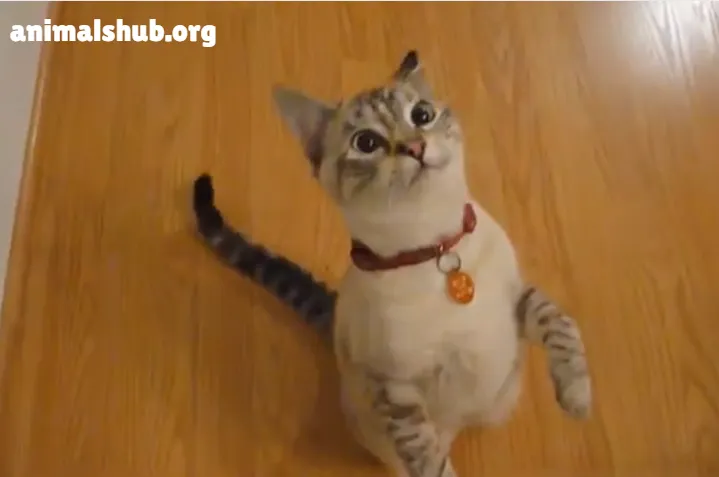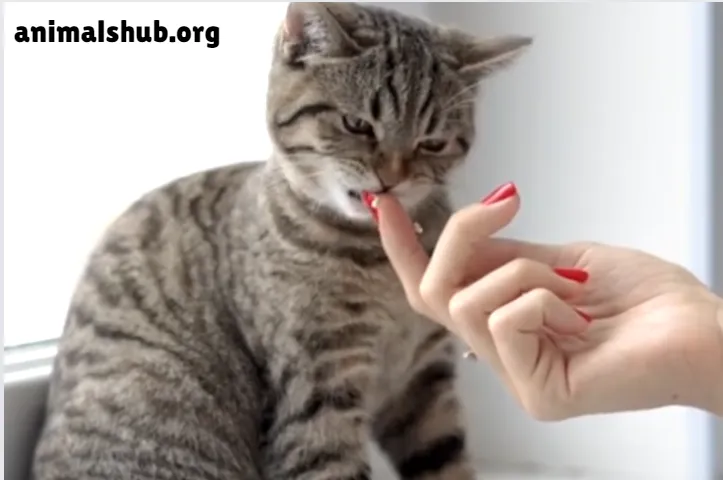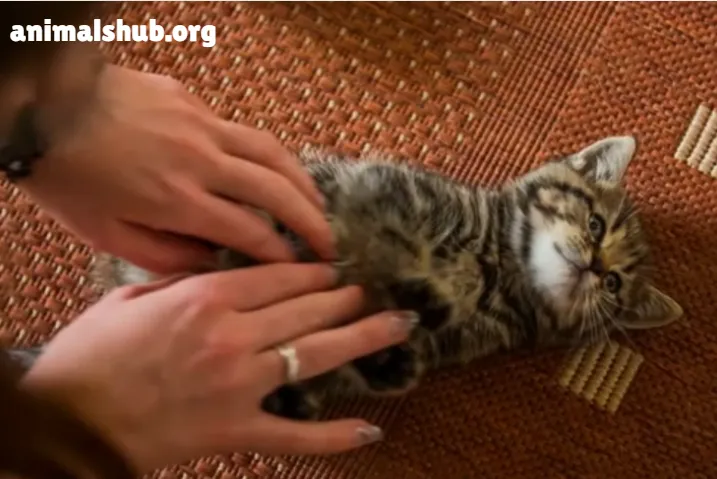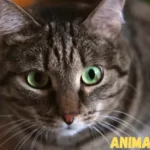Introduction
Why Does My Cat Bite While Purring? – Cats have usually involved humans with their mysterious and unpredictable conduct. Whether it’s referred to as a “love bite” or a playful nip, there are many cat-biting reasons behind this behavior. A not unusual scenario that worries cat owners is when a cat bites, even though it’s far glad and screaming. What is the motive for this complicated conduct? Whether it’s referred to as a “love bite” or a puppy attack, there are many motives. In this text, we’ll look at the motives why your cat bites while peeing, and we will give you suggestions on how to better understand and cope with this behavior. Read more about Cat information at Animals Hub Org.

The Nature of the Purr-and-Bite Behavior
Biting or aggression: Many specialists agree that a surprising bite can be a sign of overfeeding.
Static electricity: Some cats’ fur can move barely from repeated strokes, which can cause a terrible reaction.
Pain: Joints or deformities, particularly in huge cats, can cause bites when touchy regions are touched.
Socialization: A cat’s tolerance degree depends on how properly it’s been socialized. Cats with a positive mindset from an early age are more tolerant of communication, which can contribute to better feline health overall. Cats with an effective mindset from an early age are more tolerant of communique.
Why Do Cats Bite?

Cats can speak: They chew for many motives, together with play and pain. To manage conduct efficaciously, it’s far vital to apprehend the state of affairs.
Sense of threat: Biting can act as a protection mechanism while cats sense they cannot escape a scenario.
Frustration or strain: A cat may additionally bite to expose that it’s miles getting sufficient love and companionship.
Cut with the sport: Small cats, particularly kittens, are playful and may be very careful with their bites. This is a common phenomenon and is often seen as a way to practice their hunting skills. Understanding this behavior is essential for effective cat training, as it helps you manage and guide their playfulness constructively. Cats may chunk when they sense pain or pressure from a change in their surroundings.
Recognizing the Warning Signs
Understanding your cat’s body language is key to avoiding bites:
- Physical: When the toddler is weak. This can be a sign that she is starting to nurse higher
- Ear or tail wagging: These are symptoms that your cat is having a hassle socializing.
- Prey stance: The dog looks like it’s miles on the point of assault or devour.
- Sounds: Howling or purring are clear signs and symptoms that your cat needs a wreck.
Understanding Gentle Biting
Cats sometimes bite gently while purring for the following reasons:
- Play: Animals may find that lying down is part of their play Courting.
- Affection: Animals can also lie down to reveal affection, including waking up.
- Eating too much grass: Eating too much grass can cause pressure on the trident, so they may chew gently to signal that they need to rest.
- Boundary Testing: Your dog may also use treats to test his limitations with you.
- Be careful: Rats once in a while devour themselves to calm themselves or to reveal that they need to play with others or work collectively.
How to Respond to Gentle Biting
- Respect limitations: If your canine indicates symptoms of lack of confidence or over-exhilaration, prevent feeding straight away.
- Read body language: Recognizing your cat’s cues can save you a situation when he thinks he wishes to consume
- Provide playtime: It’s regular for younger animals to lie down even as gambling, but make sure to use toys as opposed to palms to keep away from encouraging this conduct.
Health Concerns and Biting Behavior
In some cases, biting can indicate underlying health problems:
Dental problems: If your cat bites near the mouth or has pain at the same time as consuming, they may have a dental problem, together with gum disease.
Skin irritation or ache: If cats have skin issues, allergic reactions, or joint aches, they will chew unique areas of the frame.
Stress or anxiety: Environmental changes, inclusive of bringing in a brand new pet or shifting, can cause strain, which may occur in biting. This stress can often lead to overstimulation in cats, manifesting as increased aggression or sensitivity.
Medical situations: Behavior adjustments, consisting of surprising aggression or lethargy, may additionally indicate scientific trouble, consisting of hyperthyroidism or diabetes. Consult your veterinarian if you observe significant changes in your cat’s affectionate cat behavior. Consult your veterinarian in case you observe significant modifications for your cat.
How to Encourage Positive Interaction
To ensure a harmonious relationship with your cat, consider the following tips:
-
- Watch your cat’s mood: Cats will show signs when they are happy or getting enough attention. Respect his message.
- Animals that they like: Most cats like their heads, under their chins, and at the base of their ears, but not on their stomachs or backs.
- Establish a play routine: Play with your cat at regular intervals to channel his energy and strengthen your bond.
- Offer food: If your cat doesn’t want to live with you, offering food during petting can help encourage a positive relationship.
When to Seek Veterinary Help

If your cat’s biting becomes more frequent or severe, it may be time to seek professional advice:
- Sudden adjustments in behavior: Going from slight biting to aggressive conduct can be a signal of contamination.
- Symptoms of ache or discomfort: Reluctance to transport, devour, or exchange your grooming may also indicate an infection.
- Overreaction: If the bites grow to be severe and problematic, a visit to the vet can be necessary to determine the precise cause. Understanding cat body language can be crucial in diagnosing and addressing underlying issues that may contribute to aggressive or unusual biting behavior
- Consistent restraint: If high-quality reinforcement and behavior modification does not work, a veterinarian or animal behaviorist can guide you on issues related to feline purring and other behaviors.
Conclusion
Understanding why your cat purrs after which bites is vital to building a sturdy bond with your buddy. Whether it is an expression of love, greater stimulation, or a request for interest, each cat communicates uniquely. By paying attention to their cues, respecting their limitations, and ensuring their fitness and well-being, you can enhance your pet interaction and build a loving and harmonious relationship with your cat.


